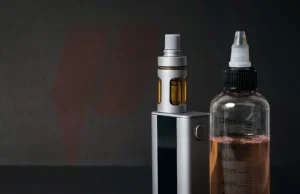Hosted by Asia Pacific’s coalition of consumer Tobacco Harm Reduction (THR) organisations, The Coalition of Asia Pacific Tobacco Harm Reduction Advocates (CAPHRA), The Advocates Voice (TAV) panel discussion premiered at 12.00pm Hong Kong Time or 4.00pm New Zealand Time. TAV has a growing following among THR supporters and the public.
WHO’s latest TobReg report
“WHO’s negative and obstructive approach towards safer nicotine vaping products continues to impact smoking cessation rates, costing lives globally. WHO continues to treat smoking and nicotine vaping as the same and ignores all the science,” said Executive Coordinator of CAPHRA, Nancy Loucas, ahead of the broadcast.
“We will discuss TobReg and the action that advocates can take, and what consumers and the public need to do to protect their rights to make informed choices for their health,” she added. “TAV is keen to also confront a recent avalanche of mistruths and myths about vaping which the media seems determined to publicise. The ‘youth vaping epidemic’ seems to have made a comeback as a media favourite, but we have some very solid empirical data which quashes any emotion some are trying to drum up.”
Loucas added that media are now also claiming that vape flavours may be dangerous to consume, and some entities, such as the SPCA New Zealand, are even saying that vaping puts pets at risk. “TAV will deal to all these, plus any other baseless beat ups, in its typically full and frank format,” she said.
Misleading media reports
Similarly, the 2020 US Vape Store Survey has revealed that sensationalist and misleading media reports is what has caused most of the damage to the vape industry in 2020, rather than the coronavirus pandemic, as commonly assumed.
The average store revenue dropped by 18% between 2019 and 2020, with approximately 80% of stores reporting a decline. Interestingly, state and local bans on flavoured products are only believed to have contributed to about a 7% loss in sales.
“At a time when accuracy in reporting is under the national spotlight, this is a vivid illustration of the real damage that can be caused by irresponsible journalism,” said ECigIntelligence editorial director Barnaby Page. “The EVALI outbreak was shown to be caused by vaping of contaminated street cannabis products – nothing to do with the nicotine products that legitimate vape stores sell – but nevertheless these small businesses suffered heavily as a result of the linkage made in sensational reporting.”












